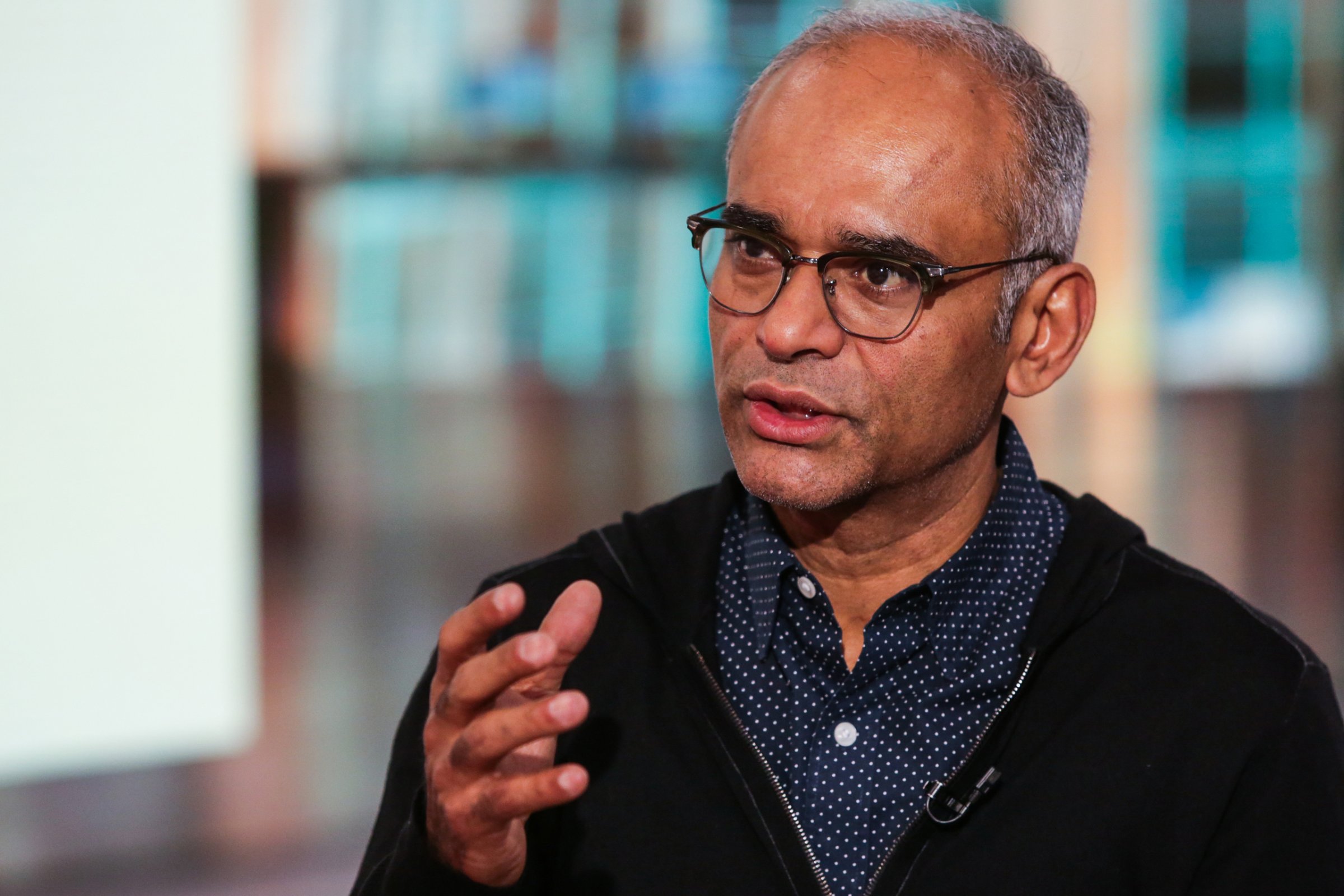
Roughly 3 out of 4 venture-backed startups fail, according to Harvard Business School’s Shikhar Ghosh, who studies young companies. Typically they falter because they can’t find a market, can’t compete or run out of funding. But it’s almost unheard of for a startup to die in front of the U.S. Supreme Court, as Chaitanya Kanojia’s Aereo did two years ago this month.
Aereo, which launched to fanfare in 2012 and attracted millions in funding from the likes of Barry Diller’s IAC, offered low-cost television service over the Internet, including local over-the-air channels carrying CBS, NBC and Fox. Broadcasters objected to Aereo’s method of transmitting their content and charging for it. The ensuing legal battle, widely watched by tech founders and investors, pitted the fledgling firm against America’s most powerful cable and media giants.
The 46-year-old Kanojia, who goes by Chet, says he was “supremely disappointed” by the 6-3 decision against Aereo. “We were 100% certain that if it’s on merits, we win,” he says, arguing his opponents were simply too powerful in political circles. “These broadcasters had long, long, long relationships in Washington, D.C., and they give tons of money.”
That isn’t stopping Kanojia from taking on another set of entrenched, well-funded firms: this time, the $35 billion broadband industry. His new company, Boston-based Starry, is built on the idea that homes might receive high-speed Internet access much the same way smartphones do, wirelessly. (You may surf the Internet over wi-fi, but the signal is usually generated by a modem connected by cable.) The company’s plans call for Internet-beaming equipment to be installed on tall buildings. Each of those stations would have a range of about a mile. Customers would link to the network by a small antenna on the outside of the home.
Kanojia says he wants to offer an alternative to the roughly 75% of American households with no choice in their broadband provider. (Many service providers enjoy local monopolies.) To be sure, other companies have tried to do the same, including Clearwire, which failed to take off and was acquired by Sprint in 2013.
Starry differs in that it uses high-frequency signals that may deliver better results. The signals it employs have mostly been avoided by Internet providers because thick buildings and bad weather have proved confounding. But experts increasingly view them as an underutilized resource that, with the right technology, could usher in the next wireless-communications breakthrough. (Verizon and AT&T are also experimenting with the concept.)
Starry, which has raised an undisclosed amount of first-round funding from investors including FirstMark Capital and IAC, is also selling a new approach to distribute signals inside the home. Its $350 router features a touchscreen interface and easy setup, unlike the clunky black boxes familiar to most consumers. The device, which went on sale in May, will work either with existing Internet service providers or with Starry’s service when it starts this summer. “If there’s any group that is going to come through with a technological breakthrough here, it is this team,” says Amish Jani, founder and managing director at FirstMark.
Still, Starry’s fundamental concept remains unproven, says Christopher Yoo, a professor at the University of Pennsylvania Law School. One question is whether people will want to install new hardware outside their homes. But the real challenge may be establishing a business model based on thin air. Cord cutters who don’t want to pay for TV-and-Internet bundles are an obvious market–but still a small one. “We have not announced pricing yet, but you can imagine if you can provide similar or two times the speed … at a really attractive price, then it’s a good proposition for those people,” says Kanojia. And that’s an argument even big broadband companies may need to consider.
More Must-Reads from TIME
- Why Trump’s Message Worked on Latino Men
- What Trump’s Win Could Mean for Housing
- The 100 Must-Read Books of 2024
- Sleep Doctors Share the 1 Tip That’s Changed Their Lives
- Column: Let’s Bring Back Romance
- What It’s Like to Have Long COVID As a Kid
- FX’s Say Nothing Is the Must-Watch Political Thriller of 2024
- Merle Bombardieri Is Helping People Make the Baby Decision
Contact us at letters@time.com